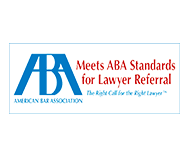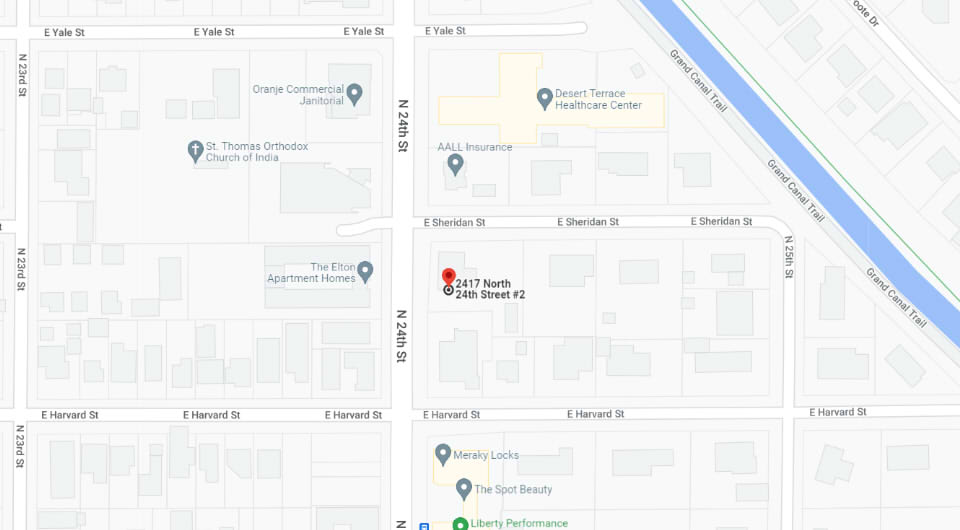Hypoxic ischemic encephalopathy (HIE) is a condition in which a child’s brain fails to receive enough oxygen. This can cause brain damage and a lifelong disability. Medical practitioners are responsible for exercising reasonable care during pregnancy and delivery to ensure your child is healthy.
If your child suffers from HIE due to medical negligence, you may be eligible for compensation for the medical expenses and other losses resulting from the child’s injury. However, recovering compensation is not automatic. You must file a medical malpractice lawsuit and battle it out in court. Navigating a civil claim while nursing a sick child can be very challenging. Therefore, seeking legal help is critical.
At the Phoenix Personal Injury Attorney Law Firm, we understand the devastation you must experience watching your newborn deal with the aftermath of HIE. We offer expert legal guidance to all our clients pursuing a medical negligence lawsuit for hypoxic-ischemic encephalopathy in Phoenix, AZ.
An Overview of Hypoxic Ischemic Encephalopathy (HIE)
HIE is a common birth complication among full-term infants. The condition arises when the oxygen and the flow of blood to a child’s brain are interrupted. HIE causes lifelong neurological conditions and affects the kidneys and heart of the child. Unfortunately, HIE is a permanent condition.
This means there is no cure; a child must deal with the effects for a lifetime. HIE is classified according to severity. The physician will use the Sarnat classification to determine the seriousness of your child’s condition and the likely outcomes for each stage. The Sarnat scale consists of:
- Mild HIE. A mild or grade I case of HIE presents when your child is hyper-alert. Although their muscle tone may be normal, overactive reflexes are detected. The infant will also show irritability and unusual levels of crying.
- Moderate HIE. Grade II or moderate HIE is exhibited through floppiness of the child’s muscles and deep tendon weakness. The child may also experience apnea and poor feeding patterns. With twenty-four hours of moderate HIE, seizures could begin. With this level of HIE, the infant could recover after a while and have a chance at a normal life.
- Severe HIE. Children diagnosed with stage III HIE experience all the symptoms of the condition. The infant may be unresponsive to stimuli, and suckling reflexes are impaired. Infants in this category experience intense seizures, and there is no chance of recovery.
Causes of Hypoxic Ischemic Encephalopathy
Several scenarios during pregnancy and birth can contribute to the development of HIE. The following pregnancy-related factors can increase the chances of HIE:
- Preeclampsia.
- Cardiac disease.
- Maternal diabetes.
- Improper monitoring of the fetal heart rate.
- Placenta malformations like early detachment.
- Blood infection during pregnancy.
- Lung and vital organ malformations.
The medical team handling your pregnancy can reduce the risk of HIE by detecting and controlling pregnancy complications. HIE can be caused during delivery by:
- Breach birth. During a breach birth, a baby can be stuck in the birth canal, delaying the birth. This can also block or damage the umbilical cord, depriving the baby’s brain of oxygen. In such a situation, the doctor may need to use forceps to guide the child out. Excessive force on the forceps can cause brain bleeding and injury.
- Umbilical cord complications. The umbilical cord is a child’s lifeline during pregnancy. The child feeds and receives oxygen through the umbilical cord. Straining of the cord during pregnancy, labor, or birth can deprive the baby of oxygen, which causes brain damage. Multiple gestations, excessive amniotic fluid, and premature delivery are common causes of umbilical cord complications.
- Prolonged labor. When delivery is delayed, the child may be in distress, which requires immediate delivery. The longer the distress, the greater the likelihood of oxygen deprivation.
- Excessive placental bleeding. When the placenta detaches from the uterine wall prematurely, excessive bleeding can deprive the child’s brain of oxygen, causing HIE.
Symptoms Common to Hypoxic Ischemic Encephalopathy
Depending on the duration of oxygen deprivation and severity of the condition, HIE can present the following symptoms:
- Abnormal reaction to sounds and sights. The damage sustained during the birth injury could impair the child’s ability to process sensory information and respond accordingly. Some infants with HIE have no response to stimuli, while others have extreme reactions.
- Feeding complications. An interruption of oxygen supply to the brain can cause damage to the muscles of the throat and neck. This causes difficulty latching.
- Seizures. HIE can interrupt the electrical impulses in the brain, causing jerky movements and seizures.
- Weak cry. One of the common signs of HIE after birth is a weak cry. This could be an indication of damage to the vocal muscles and diaphragm.
- Organ dysfunction. When a child has a damaged liver, kidneys, lungs, or liver, it may be an indication of HIE.
Compensation Benefits in an HIE Injury Lawsuit
When you file a medical malpractice lawsuit, you shoulder the responsibility of proving the defendant’s negligence to the court. There is no limit to the number of defendants you can have in your lawsuit. Suing multiple parties for contributing to your child’s condition increases your chances of suitable compensation.
Your medical team has a duty to ensure that you and your child come out of the delivery room healthy. Therefore, you can establish their liability for your child’s injury by proving that they breached the duty by acting negligently. A successful medical malpractice lawsuit could result in compensation for:
- Medical expenses. HIE has no cure. Therefore, your child will need lifelong medical care to manage the symptoms. If your medical malpractice claim is successful, the court will award you compensation for the past and future medical bills associated with the condition.
- Physical rehabilitation. Oxygen deprivation to the brain can affect multiple aspects of your child, including motion and reflexes. This will mandate constant physical rehabilitation.
- Loss of income. When HIE severely disables your child, you may need to stop working and dedicate your time to caring for them. The compensation for your medical malpractice lawsuit will cover the lost income.
- Pain and suffering. Watching your child suffer the lifetime repercussions of HIE is devastating. You can be compensated for the pain and mental anguish you suffered from the incident.
Wrongful Death from Birth Injuries in Arizona
Hypoxic ischemic encephalopathy is a serious birth injury that can leave your child severely disabled or cause them to die soon after birth. Losing an infant due to negligence can be a devastating experience for you and your family. You can file a wrongful death lawsuit if you have lost a child under these circumstances.
The wrongful death claim holds doctors and institutions liable for their actions or failure to act, which amounts to negligence. As the parent of the deceased child, you have the right to file a lawsuit and recover compensation. Although monetary compensation may not help bring your child back, the compensation you receive can help you offset the child's medical bills and funeral expenses.
Frequently Asked Questions on Hypoxic Ischemic Encephalopathy
Learning that your child has suffered HIE during birth can be devastating and confusing. The thought of your child’s medical condition and its suffering can take a toll on you. The following are frequently asked questions on detection, treatment, and compensation for infant hypoxic-ischemic encephalopathy:
-
How do I know my child has HIE?
If your physician notices symptoms like weak crying, abnormal movement, seizures, and an underreaction to stimuli, they may suspect your child has HIE. In such a case, a neurologist will conduct various tests to confirm the HIE and ascertain the extent of your child’s brain damage.
-
Is hypoxic-ischemic encephalopathy fatal?
Yes, HIE is a condition that involves the deprivation of oxygen from the brain. The cells will begin to die within the first five minutes of oxygen deprivation. Lack of oxygen will affect not only the brain but other organs, causing:
- Liver damage.
- Kidney failure.
- Digestive complications.
- Heart damage.
- Impaired muscle function.
All these complications, coupled with brain damage, can be fatal for the child. In cases of moderate and severe HIE, you could lose the child.
-
Is hypoxic-ischemic encephalopathy curable?
With today’s scientific understanding, there is no cure for HIE. However, doctors can minimize the severity of the conditions by trying different forms of therapy. Most children who suffer from HIE must deal with the consequences of the injury for a lifetime.
-
Who is liable for my child's HIE condition?
The birth of a child is a combined effort between different medical practitioners. When one or more of these individuals fails to perform their duty of care towards you or acts negligently, your child could suffer HIE. When filing a medical malpractice lawsuit for HIE, you can cite several parties as defendants in your case.
First, the doctor who monitored you during the pregnancy can be held liable for the injury. This is because they are responsible for identifying any issues with your pregnancy and advising you to seek further medical care. Another party who could shoulder liability for your child’s condition is the medical team participating in your delivery.
If you feel that poor training and hospital protocols contributed to your child’s birth injury, you can file a claim against the medical facility where you delivered.
-
What is Arizona's Statute of Limitations for Birth Injury Claims?
The statute of limitations is when you must file a medical malpractice lawsuit for compensation. Having a statute of limitations ensures that injured parties do not take too long to pursue compensation. Claims filed after the statute of limitations has elapsed will not result in compensation.
In Arizona, the parents of an injured newborn must file a claim within two years. If a parent does not file a claim, a child can file it independently when they are of age. Sometimes, the statute of limitations may extend until the child turns eighteen, allowing them to pursue compensation.
-
What should I do when I learn my child has HIE?
Watching your child suffer from the effects of a serious birth injury like HIE could feel like the end of life. However, you are entitled to compensation for this suffering and the expenses associated with medical malpractice. The steps you follow after receiving information on the injury are critical to your ability to recover compensation. The following are important steps you can take to seek justice and secure favorable compensation:
- Seek a medical evaluation for the child. If your newborn shows obvious signs of HIE, you should have them undergo different tests to ascertain whether they have HIE. Receiving a diagnosis is a good start to filing a successful medical malpractice claim.
- Seek treatment for the child. Your child’s health and well-being are most important after a birth injury. Although hypoxic-ischemic encephalopathy is not curable, seeking immediate medical care for your child can help reduce the severity of the condition.
- Collect relevant evidence. Whether your child’s HIE results from defects before or after delivery, you can file a lawsuit against the doctors and medical facility for compensation. However, before you receive compensation, you will need evidence of liability, injury, and expenses. By recording the amounts, you spent on treatment, and how the injury has impacted your life, you have a chance at compensation.
- Pursue a claim. You can file a lawsuit against the parties liable for your child’s injury when you have the necessary evidence. Dealing with a medical malpractice lawsuit can be challenging. Therefore, seeking legal guidance is critical.
Other Birth Defects
HIE is a birth defect resulting from a lack of care, negligence, and medical malpractice. Other types of birth defects for which you can seek compensation in a medical malpractice lawsuit in Arizona include:
Birth Asphyxia
Asphyxia is a condition that occurs when a child's body lacks oxygen to the point of unconsciousness. With birth asphyxia, different factors cause a part of the baby’s brain to be deprived of oxygen during or after birth. Several conditions can limit oxygen flow, including the following:
- Placenta abruption, where the placenta separates from the uterine wall prematurely.
- Prolonged labor and delayed delivery.
- Compression of the umbilical cord.
- Maternal high blood pressure.
- Infections during labor.
During delivery and labor, health care practitioners have the responsibility to monitor the mother and baby to detect obvious signs of complications. If there is a sign of distress, the doctor must react accordingly to avoid birth injuries like asphyxia. Common symptoms of birth asphyxia include the following:
- Abnormal fetal heart rate.
- Lack of movement or weak muscle tone.
- Depressed breathing.
- Evidence of meconium in the amniotic fluid.
- Seizures after birth.
Cerebral Palsy
Abnormal brain development or brain damage during labor and delivery is a common cause of cerebral palsy. CP is one of the most severe and life-changing birth injuries. Cerebral palsy can be ataxic, spastic, or dyskinetic, depending on the seriousness and location of the brain damage. Symptoms of cerebral palsy could be noticed immediately after birth or in the child's formative years.
Children with cerebral palsy often have difficulty achieving milestones like rolling over, neck support, or standing up. Some causes of CP, especially those occurring during labor and delivery, could be prevented if all medical team members acted with reasonable care.
A child diagnosed with cerebral palsy may need lifetime care due to the inability to walk, talk, or even consume food orally. This could take an emotional toll on you. You can file a medical malpractice lawsuit by identifying the parties who acted negligently and recovering compensation for your losses.
Erb’s Palsy
When a child’s brachial plexus nerve is stretched excessively during birth, the child could suffer from Erb’s palsy. Erb’s palsy affects not only the child's birth and formative years but can impact their lives forever. Most factors that cause this condition can be prevented when the doctors identify the signs of shoulder dystocia and take appropriate measures to remove the child from the pelvic bone.
Some of the symptoms of Erb’s palsy that you should look out for in your child after a traumatic birth include:
- Lack of shoulder movement.
- Weak arm reflexes.
- Abnormal arm position.
If your child exhibits the symptoms of this condition, the doctor can perform a nerve conduction study, an electromyogram, or an x-ray to determine the level of nerve damage. In mild cases, the symptoms of Erb’s palsy can resolve without treatment. However, there are cases where your child will need nerve decompression to make the condition better.
Find a Personal Injury Attorney Near Me
When you walk into a hospital to give birth, you entrust your well-being and that of your child to the doctors. Pregnancy is a nine-month journey that everyone expects to end in joy. Unfortunately, when doctors fail to provide the necessary level of care and attention, your life and that of your child could be at risk.
Birth injuries like hypoxic-ischemic encephalopathy have devastating pregnancy outcomes. Issues like prolonged labor or the wrongful use of medical tools can cause a poor blood supply to a child’s brain, which results in this life-threatening condition. If your child suffers hypoxic-ischemic encephalopathy as a result of pregnancy or birth complications, you have the right to sue the medical practitioners and medical facility for the injury.
You will benefit from the top-notch legal guidance we offer at the Phoenix Personal Injury Attorney Law Firm as you battle your medical malpractice lawsuit in Phoenix, AZ. Contact us today at 602-641-9589 for a case review and much-needed guidance.










